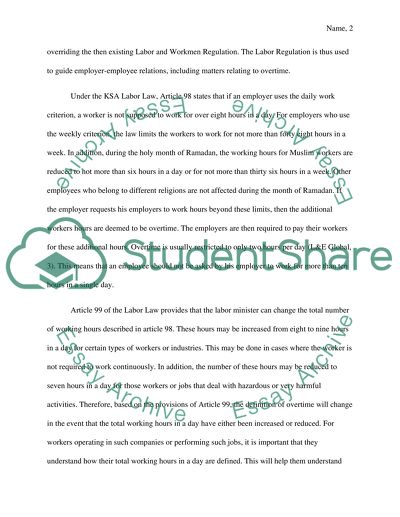Cite this document
(“Legal Regulation of Overtime in Saudi Arabia Research Paper”, n.d.)
Legal Regulation of Overtime in Saudi Arabia Research Paper. Retrieved from https://studentshare.org/human-resources/1686950-legal-regulation-of-overtime-in-saudi-arabia
Legal Regulation of Overtime in Saudi Arabia Research Paper. Retrieved from https://studentshare.org/human-resources/1686950-legal-regulation-of-overtime-in-saudi-arabia
(Legal Regulation of Overtime in Saudi Arabia Research Paper)
Legal Regulation of Overtime in Saudi Arabia Research Paper. https://studentshare.org/human-resources/1686950-legal-regulation-of-overtime-in-saudi-arabia.
Legal Regulation of Overtime in Saudi Arabia Research Paper. https://studentshare.org/human-resources/1686950-legal-regulation-of-overtime-in-saudi-arabia.
“Legal Regulation of Overtime in Saudi Arabia Research Paper”, n.d. https://studentshare.org/human-resources/1686950-legal-regulation-of-overtime-in-saudi-arabia.


